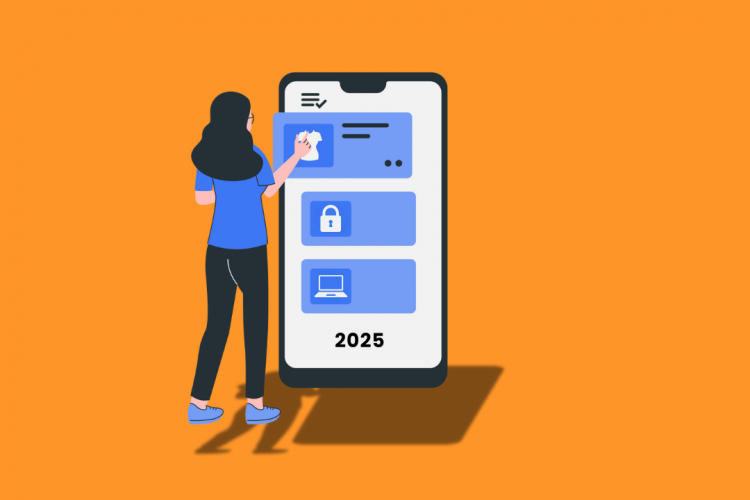The new year is here, and with it comes the perfect opportunity to reflect on your cybersecurity habits and set goals for staying secure. 2025 promises to be a year of change, with AI tightening its grip on the cyber security industry, and these resolutions will help you strengthen your defences against an increasingly sophisticated threat landscape.
1. Learn to Use AI Assistants Securely
AI has become an integral part of modern life and business operations. While it offers incredible convenience, it also introduces new risks, and it’s worth getting into good habits. Follow these tips to use AI responsibly:
- Double-check AI Advice: When relying on AI for business decisions, verify the information provided, particularly in areas like financial forecasting or strategic planning. AI can sometimes “hallucinate,” producing inaccurate or misleading results.
- Disable Unnecessary Features: The craze of AI has lead to companies throwing AI features at every product they can. Avoid enabling AI functions you don’t use, or when you don’t know what they’re for.
- Avoid Sharing Sensitive Information: AI doesn’t need your personal data. Never provide AI assistants with proprietary data, financial details, or confidential business information. Such information could be stored for AI training purposes and is at risk of a leak. Stay safe, and don’t give it out in the first place.
2. Strengthen Password Practices
Passwords remain the cornerstone of online security, yet weak and reused passwords are still a primary vulnerability. In 2025, commit to using unique, complex passwords for every account. Better yet, adopt a password manager to generate and store them securely. By doing so, you not only reduce the risk of credential theft but also make managing multiple accounts more efficient.
Additionally, switch to passkeys wherever possible. Microsoft has committed to move a billion users to them, and being an early adopter is not a bad thing in this case. Passkeys are a more secure authentication method, logging you into any site using biometric verification or a PIN code. The check is carried out locally on your computer or smartphone, after which the device decrypts from its storage a unique cryptographic key for the website in question, which “recognises” you by this key.
3. Stay Updated on Software and Hardware
Cyber criminals frequently exploit vulnerabilities in outdated software and hardware. Resolve to keep all devices—from smartphones to IoT gadgets—updated with the latest security patches. Enable automatic updates wherever possible to ensure timely protection against emerging threats.
For businesses, maintaining an inventory of all connected devices and their software versions can help identify and address potential weak points.
4. Boost Phishing Awareness
Phishing remains one of the most pervasive cyber threats. In 2025, dedicate time to improving your ability to recognise and avoid phishing scams. Be cautious of unsolicited emails and messages, particularly those requesting sensitive information or urging immediate action. Also, take the time to educate those closest to you, to keep them safe.
For businesses, investing in regular cyber security awareness training for employees is critical. Simulated phishing campaigns can help identify areas where additional education is needed.
5. Review and Refresh Your Digital Footprint
Your digital presence can reveal more about you than you might realise. Take time to audit your social media profiles and online accounts. Remove any outdated or unnecessary information that could be used against you in a social engineering attack.
For professionals, keeping LinkedIn and other professional profiles accurate but minimal can help reduce exposure to targeted attacks. Photos and videos should not display any sensitive information, including the details of ID cards or access controls to offices.
6. Invest in Regular Security Audits
Self-assessment is crucial, but a professional review of your security posture can uncover hidden vulnerabilities. In 2025, schedule regular security audits or penetration tests to identify and address weaknesses in your systems.
For businesses, leveraging third-party auditors ensures an unbiased evaluation and helps maintain compliance with industry standards like PCI DSS or ISO 27001. Talk to OmniCyber Security today to find out the best way to evaluate your security.
By making these resolutions part of your 2025 strategy, you can build a more resilient digital environment for yourself and your organisation. Cyber security isn’t a one-time effort but an ongoing commitment to vigilance and adaptation. Let’s make 2025 a year of safety.




